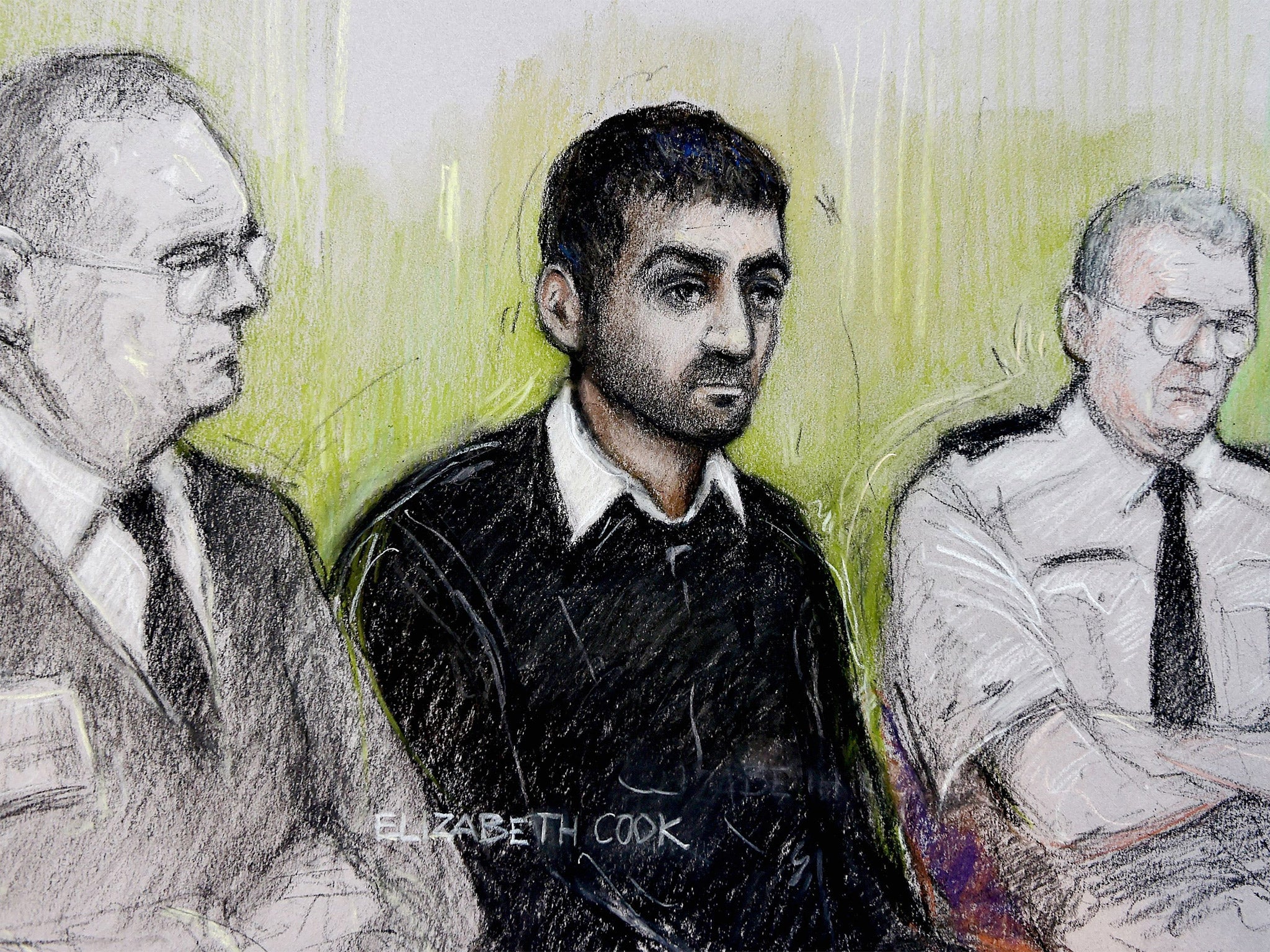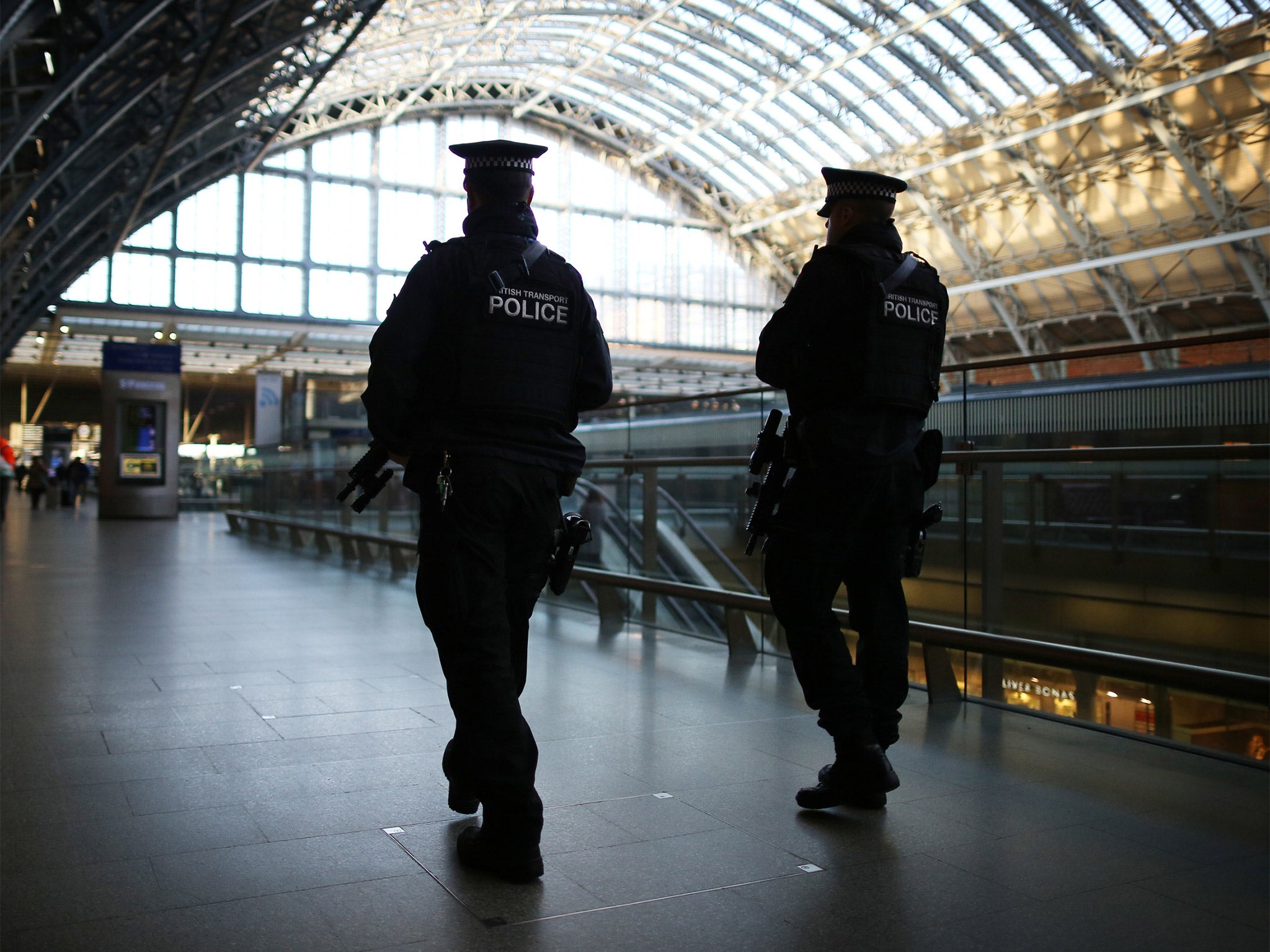Media gagged over terrorism case: Has the Court of Appeal ushered in a new era of ‘secret justice’?
Preventing media from acting as 'watchdog of public interest' contradicts a fundamental principle of democracy

Your support helps us to tell the story
From reproductive rights to climate change to Big Tech, The Independent is on the ground when the story is developing. Whether it's investigating the financials of Elon Musk's pro-Trump PAC or producing our latest documentary, 'The A Word', which shines a light on the American women fighting for reproductive rights, we know how important it is to parse out the facts from the messaging.
At such a critical moment in US history, we need reporters on the ground. Your donation allows us to keep sending journalists to speak to both sides of the story.
The Independent is trusted by Americans across the entire political spectrum. And unlike many other quality news outlets, we choose not to lock Americans out of our reporting and analysis with paywalls. We believe quality journalism should be available to everyone, paid for by those who can afford it.
Your support makes all the difference.The terror threat facing Britain is more serious than it has ever been. In the past year, our security services have foiled at least seven terrorism plots that could have brought carnage to UK streets.
The atrocities in Paris last year were a grisly reminder of what happens if the attackers get through. Terror arrests have reached a record level and the police and MI5 are struggling to surveil the activities of at least 3,000 extremists who are said to be on the security radar.
Given these exceptional concerns, it is perhaps understandable that teachers, social workers, immigration officers and a whole host of other public servants are being asked to help protect national security. This month, it has been the turn of the judges.
In a case concerning a suspect who had been acquitted of planning a terror attack on London, the Court of Appeal was asked by the security services to do their bit: lawyers for the Government told a panel of three senior judges that they must suppress publication of the evidence in the case. It was an unprecedented request that goes to the heart of the principle of open justice.
Erol Incedal, 28, a law student from London, had been convicted of possessing a bomb-making manual but was acquitted of the more serious allegation that he was planning a terror attack.
The evidence against Incedal was so sensitive that most of his trial had be held behind closed doors. It was argued by the prosecution that if the media were allowed to publish details about his defence, national security would be threatened.
The trial judge acquiesced and the trial was allowed to proceed in secret, with the limited concession that 10 accredited journalists could sit in on the less sensitive part of the case, provided they agreed not to disclose what they had heard.
After two trials, the jury cleared Incedal of the main charge, although he was sentenced to 42 weeks imprisonment for possessing the bomb-making manual. Not since the Second World War has a British criminal trial been subject to such secrecy.
Last week, more than three years after Incedal’s arrest and after he had served his sentence, it fell to three judges sitting in the Court of Appeal to decide whether it was safe for the public to be told the reason for all the secrecy.

In a unanimous decision, the judges ruled against disclosure – explaining that the “nature of the evidence” required a “departure from the principle of open justice”. The judges acknowledged that “this has the consequence that any public accountability for matters relating to the prosecution cannot be achieved through the press in its function as ‘watchdog’ of the public interest”.
Instead, they said it would be for Parliament’s Intelligence and Security Committee to fulfil the function of “public accountability”. And, in a worrying portent, the court said it expected more terrorism cases to be dealt with in this way.
This is a dangerous precedent that is not only a serious erosion of the principle of open justice but may have opened the door to a new kind of secret justice in terrorism cases.
It is not just in criminal cases that the courts are using secrecy to deal with matters of terrorism. In October last year, the head of the family courts issued guidance to help courts deal with a growing number of cases involving teenagers who have become radicalised.
The guidance tells judges that they should consider “excluding the media” where appropriate and ensure sensitive material held by the security services remains secret.
The Government’s so-called “snoopers’ charter”, unveiled last year, tried to sneak vague terms into the bill that would benefit the security services while keeping everything secret. Britain’s newly developed policy on the use of drones to eliminate UK terror suspects in Syria also remains shrouded in secrecy. In times of emergency and threats of terrorism, the judiciary must stand firm against attacks on open justice.
The Court of Appeal’s justification (or what we are allowed to know of it) for keeping secret details of a three-year-old counter-terrorism investigation appears not to hold up to the robust stands taken by judges who have recently faced similar questions about national security.
Five years ago, the former Guantanamo Bay inmate Binyam Mohamed went to court to accuse Britain of complicity in his torture. Lawyers for the security services had argued that if the judges made public sensitive evidence in the case, it would threaten our intelligence-sharing relationship with the US.
In that case, the Court of Appeal refused to accept the security services’ arguments at face value and said they had “taken a stand” against those who posed a threat to open justice. During the case, it emerged that Government lawyers had written to one of the judges, asking him to soften his criticism of MI5.
That tactic spectacularly backfired when the letter was made public and the thrust of the judge’s comments was reinstated in his later judgment. The Government, rather than having the evidence made public, duly dropped its defence, and Mr Mohamed and the other British Guantanamo detainees each received a £1m pay-out.
Similarly, in the months after 9/11 when ministers tried to impose indefinite detention without trial, the Law Lords stood firm. In dismissing the Government arguments, Lord Hoffmann ruled that there was no “state of public emergency threatening the life of the nation”.
Instead, it was the anti-terror laws introduced by the Government that posed a threat, he declared: “The real threat to the life of the nation, in the sense of a people living in accordance with its traditional laws and political values, comes not from terrorism but from laws such as these.”
The trial of Erol Incedal is wrapped in secrecy, so we can’t know whether the judges hearing that case have strayed from such exacting standards of judicial independence. But the casualness of the language in the court’s judgement gives the unfortunate impression that the Court of Appeal is rubber-stamping the arguments of the security services.
The suggestion that the role of the media in upholding open justice can simply be outsourced to the Intelligence and Security Committee during times of national emergency betrays one of the fundamental principles of democracy.